On October 14 a “round table” was held on the theme “Human rights for education: achievements, problems, implementation” in Brest. Both bold proposals and objective information on the state of affairs were sounded.

The organizer of the event was the Republican Public Association for the Human Rights Protection (section of the International Society for Human Rights). The chairman of the organizing committee was professor Ivan Kotlyar, who introduced “round table” attendees to the problem.
A video report on the meeting taken and shown by the channel “Bug-TV” can be viewed below.
Videos on the exam?
The first report was committed by the doctor of historical sciences from Brest State Technical University, professor Mikhail Stralets. He spoke about the actual problems of modern education in the Republic of Belarus, criticizing the idea of extending the school year for schoolchildren. Among the many proposals on his part, the rejection of a 100-point system of assessments, the rejection of the practice of passing exams by children under 15 years were also called. In his opinion, a unified state exam should be taken by qualified teachers from other locales, and it is necessary to use video surveillance in the process of handing it. He also proposed the creation of an expert council under the Ministry of Education of the Republic of Belarus, on which it is necessary to determine the scientific paradigm of teaching a number of subjects so as not to repeat the mistakes of Russian colleagues.
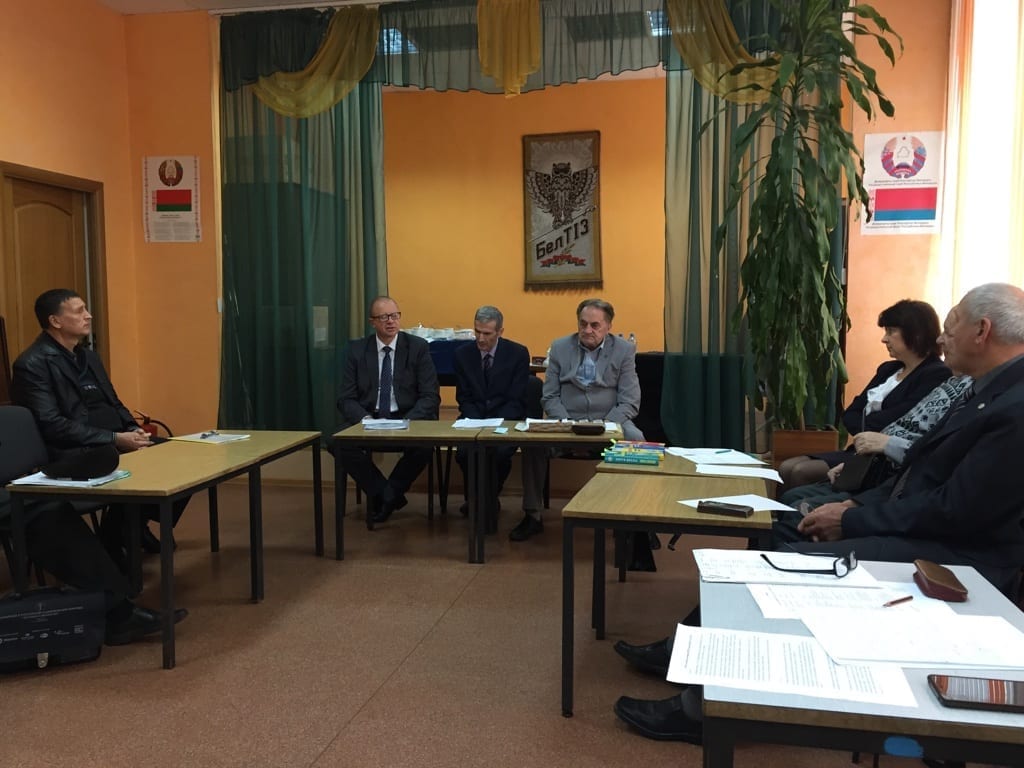
Human Resources
The second report on the state and activities of the city’s education system was made by Anatoly Noskov, head of the Education, Sports, and Tourism Department of the Brest City Executive Committee. He spoke about the structure of the system, which includes 125 educational institutions, and the staff potential. Also, he said how the problem of the shortage of preschool educational establishments has been formed and is being solved. Today, 6,500 people work in this area in the city. The average age of teachers is 45 years. Brest actively implements experimental and innovative activities. Last year, 7 educational institutions took part in this modernization. 90% of city teachers have an academic degree, 76% have the highest category. Noskov also spoke about the relative shortage of teachers for preschool education emphasized that its peak was in 2013. However, there is an excess of proposals for other specialties now but there is a system of retraining.
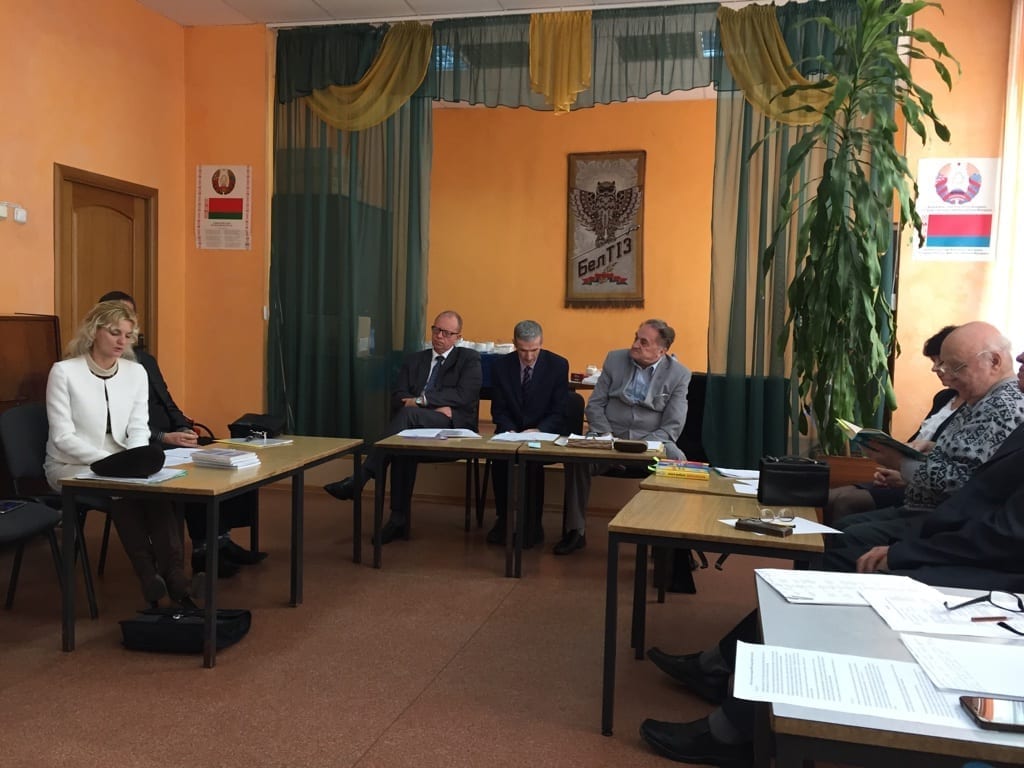
Children’s rights
The theoretical foundations and practice of implementing the United Nations Convention on the Rights of the Child in Belarus were told by the associate professor of Brest State University named after A.S. Pushkin Alena Lahunouskaya. The Convention was adopted on November 20, 1989 at the United Nations General Assembly. This is a kind of “world constitution of the rights of the child”, it consists of 54 articles and covers civil, political, economic, social, and cultural human rights. The provisions of the Convention are reduced to 4 basic requirements that must ensure the children’s rights: survival, development, protection, and participation in the society life. One of the main legal principles proclaimed by the Convention is the recognition of the child as a full member of society, the assertion of the priority of his interests over the interests of the state. The document recognizes the dominant role of the family and parents in caring for and protecting children. Furthermore, Article 14 declares the duties of the child. The Convention entered into force in Belarus on October 30, 1990.

The guests from Minsk also took a part in the round table. The report “The Universal Declaration of Human Rights – 70 years” was provided by the associate professor of the Belarusian State University Sergey Simanovsky. In his speech, it was said that among the Minsk students only very few people know the contents of this declaration, and there is something to work on. Vital Harmatny, pro-rector on ideological, educational work of the Institute of Parliamentarism and Entrepreneurship was involved in the discussion of the report. The discussion on the problem was made by the director of Brest School #2 Alena Korol, professor Ivan Kozhukh, others. They made critical judgments about the Higher Attestation Commission of the Republic of Belarus, and on the flow of document circulation which collapses on the secondary school.
One of the decisions of the round table was the proposal to hold a republican scientific and practical conference in Brest dedicated to the realization of the human rights to education in 2018.
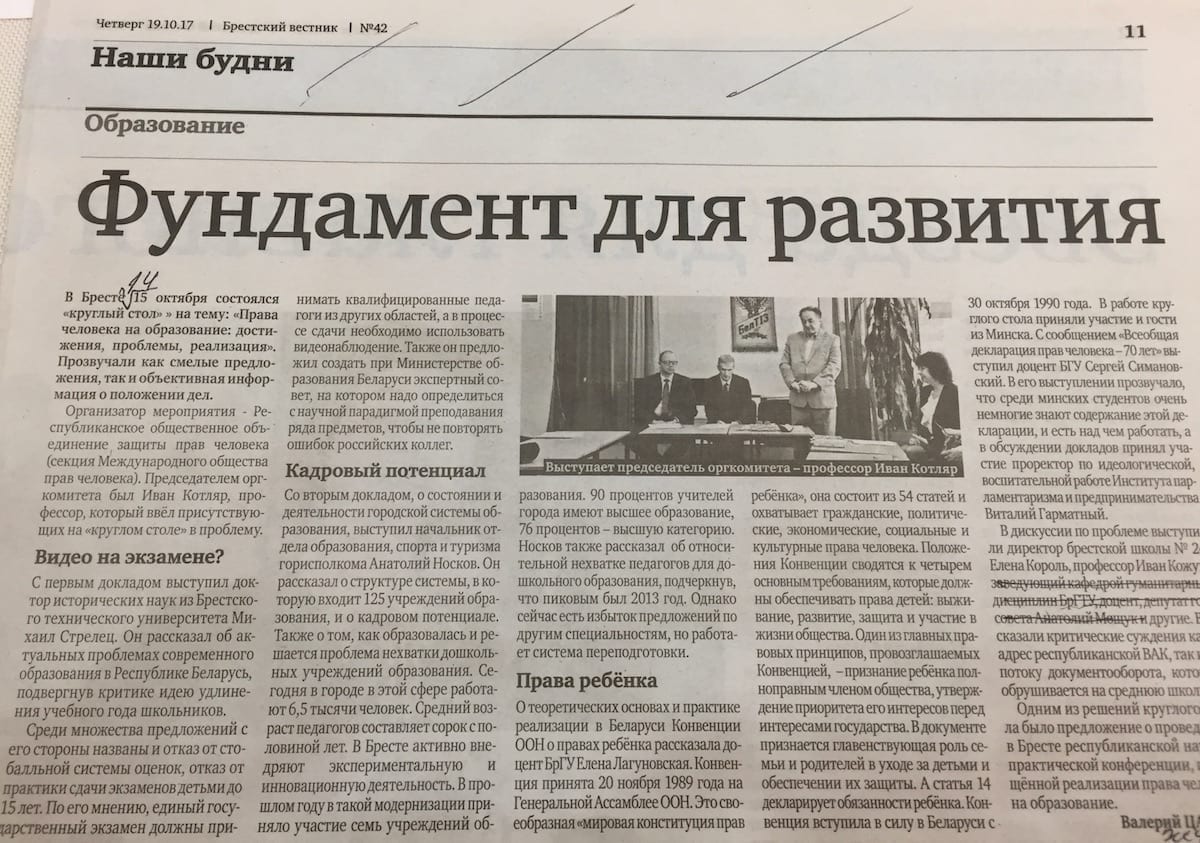
The article “Foundation for Development” by Valeriy Tsapkov originally published in the newspaper “Brestkij Vestnik” on Thursday, 19 October 2017 (issue №42, page #11) was used as a basis of this story.
The Belarusian section of the International Society for Human Rights will be held the second meeting of the “round table” on the topic “Human rights for education. Ensuring fair and quality education. Problems of the achievement of Sustainable Development Goal 4 of the United Nations” together with the Institute of Parliamentarism and Entrepreneurship on December 2, 2017 in Minsk.



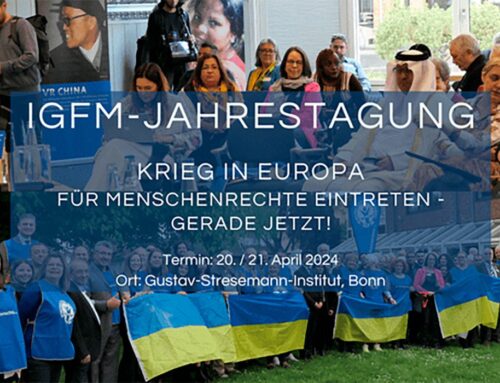
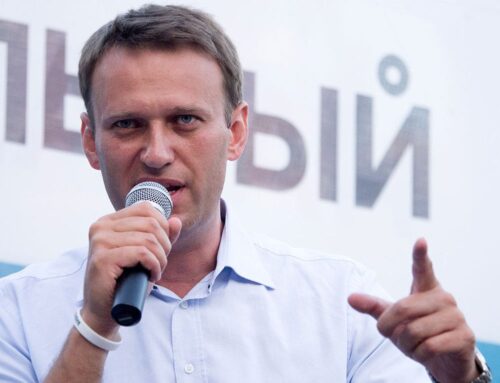
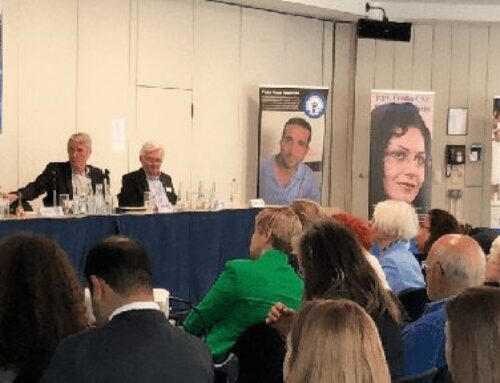


Leave A Comment